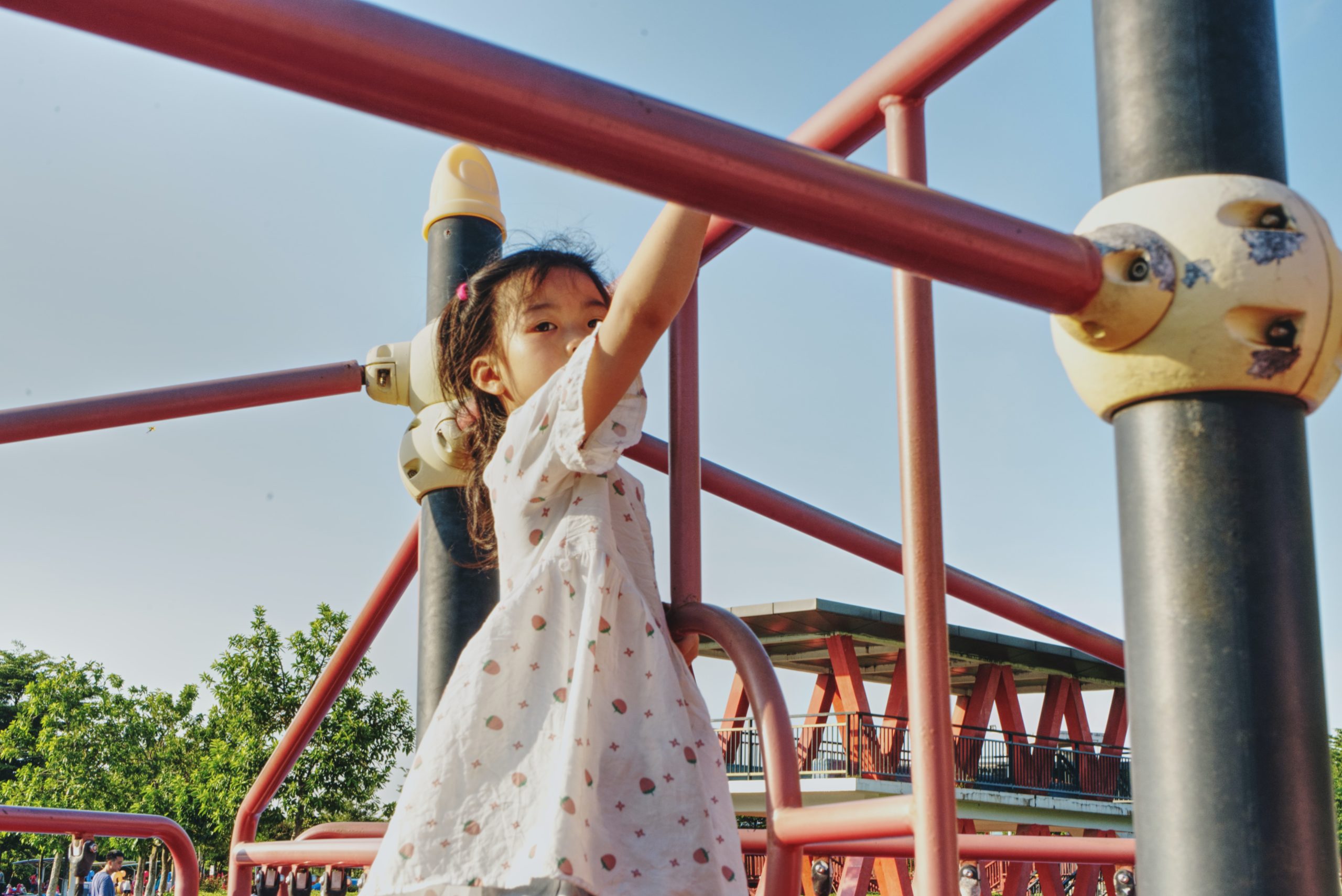6 Playground Behavioral Problems and How You Can Help

Children with different ways of thinking and learning can struggle with playground social rules. They can also have difficulty using equipment properly, waiting patiently, or taking turns. Seeing your child struggle when you yearn for them to have fun can be heartbreaking. We also understand that playtime should be the best time of all. That’s why Metro Recreation has identified some hurdles your child may encounter and how you can help them through playground behavioral problems.
Bullying
Children who have learning and thinking differences are sometimes the target of bullying. Remember, teasing and bullying are not the same, which is significant to establish. A bully exhibits mean behavior that escalates over time, including name-calling, threats, excluding others on purpose, and physical violence.
How you can help: Explain what bullying is. Ensure your child knows they can always go to you, a trusted adult, or a teacher when they see it happening. It’s also okay to walk away if they feel unsafe, their words are not helping the situation, or when they cannot figure out what to say.
Being Aggressive
All children lack impulse control. They’re kids, right? As they mature, they figure out what’s appropriate and what isn’t. It can be challenging for children with behavioral problems because they may not realize shoving, taking turns, or not paying attention to their words or actions makes others feel bad.
How you can help: It all boils down to communication. Ground rules from the get-go means children will understand the consequences of inappropriate behavior. Model what to do and what to say in different scenarios. Giving them phrases like, “Can I please have a turn?” or “I’m sorry I bumped into you” will go a long way regarding playground problems.
Winning and Losing
Children who struggle with impulse control and regulating emotions may not be gracious winners and losers. Claiming someone cheated or did not play fair is their struggle to understand their feelings. It can be challenging to regulate feeling happy, sad, or even mad.
How you can help: Games are just that––games. Sometimes we win, and sometimes we don’t. Remind your child it’s okay to be happy they walked the balance beam without falling or were the fast runner. Making others feel bad isn’t the way to make friends. Demonstrate good sportsmanship: a high-five, fist bump, or “Hey, good game!” can go a long way.
Playing alone
Starting and joining conversations can be challenging for some children. They may not know how to ask others to play nor feel comfortable jumping into an activity. Not only can it make playing with others complex, but it can also make finding friends hard too.
How you can help: Sometimes, we don’t need words to have fun in a large group: we just join in, and it’s okay for your child to do the same. This is the perfect circumstance to give your child the language to interact with others. “My name is Izzy. What’s yours?” “Do you want to swing with me?” “I like the car on your shirt. Do you want to pretend we’re racing?”
Using Equipment
Children with motor plan issues, like dyspraxia, can find it challenging to navigate gross motor equipment. Spinning merry-go-rounds, pumping legs to swing back and forth, and climbing ladders require coordinated movements. When that’s hard for a little one to do, it can be frustrating.
How you can help: Try to spend time at the playground when it is less busy and practice eye-hand-body coordination skills. Fewer people around will give you one-on-one time to work on skills with fewer distractions. It may also make your child feel less self-conscious, leading to an incredible time of learning and playing together.
Taking Risks
Impulse control––acting before thinking––can be hard to master. Children with sensory processing issues may not feel pain the way others do. Sometimes, it leads to risky behavior you’d rather see left to people in the movie stunt industry, like jumping off from high places or rough and tumble play that’s a little extreme.
How you can help: Playing on the right surfaces matters. Visit playgrounds that offer extra cushion––like sand or synthetic material––under and around large equipment to help prevent injury. An excellent mantra to teach your child is to stop, breathe, and think before they act. Teaching them to pause first will help them not only on the playground, but also in other areas of life.
The experts at Metro Recreation understand that play looks different for every child. Our team is here to ensure your surfaces and equipment are safe, accessible, and ready for all––no matter their abilities––to have fun. Ready for us to help with your playground space? Contact us now to schedule a visit!




